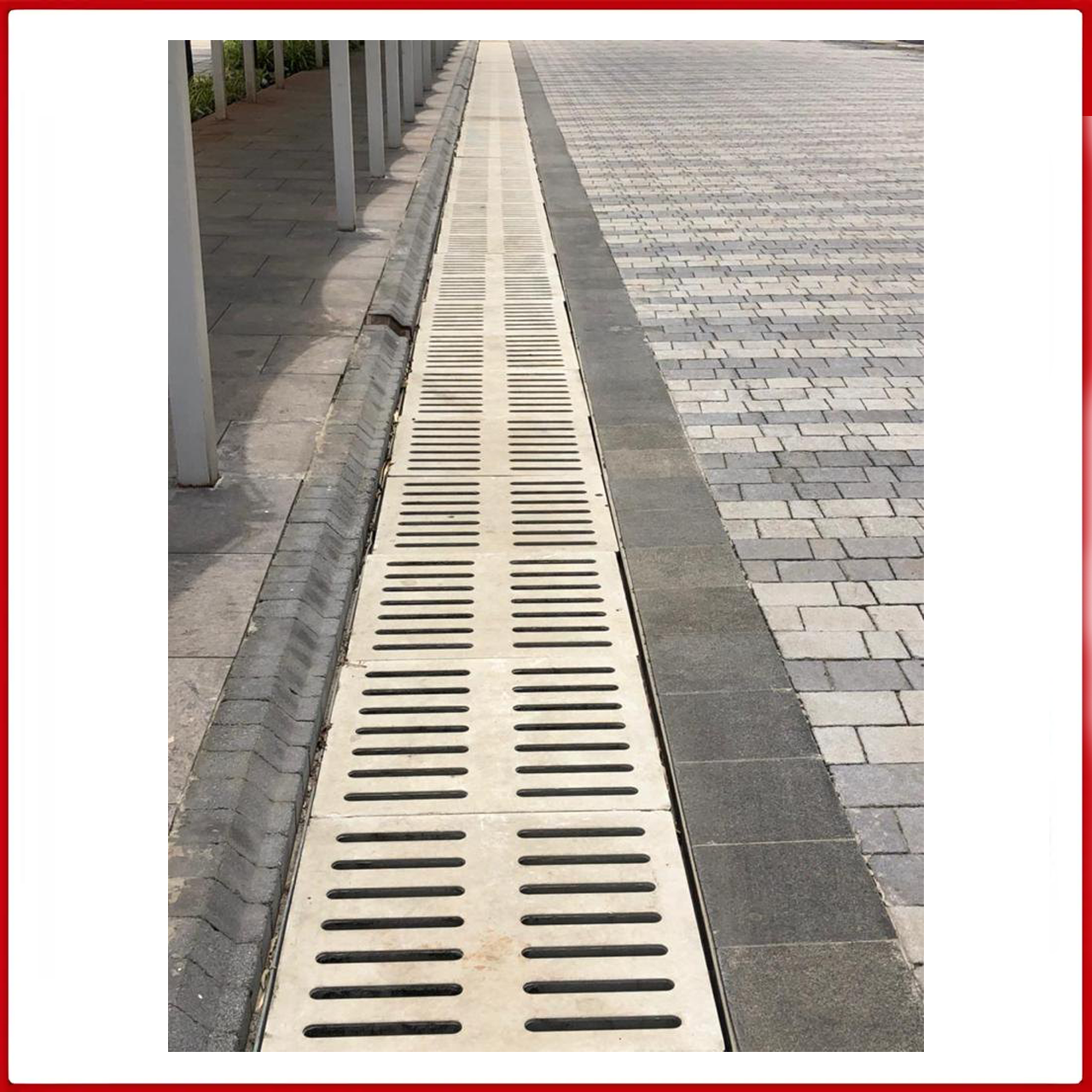**FRP Water Gully Covers** are highly durable, corrosion-resistant covers designed to protect water drainage systems, typically used in stormwater drainage, sewage systems, and other water management applications. Made from **Fiberglass Reinforced Plastic (FRP)**, these covers are designed to offer superior strength, longevity, and environmental protection in both residential and industrial settings.
Key Features of FRP Water Gully Covers
- Corrosion Resistance: FRP water gully covers are resistant to corrosion from chemicals, water, and environmental elements, ensuring they have a long service life even in harsh conditions.
- Lightweight: FRP covers are significantly lighter than traditional materials like cast iron or concrete, making them easier to handle, install, and maintain.
- High Strength: Despite being lightweight, FRP covers are incredibly strong and capable of bearing heavy loads, making them suitable for vehicular and pedestrian traffic areas.
- UV Stabilization: The FRP material used is UV stabilized, meaning the covers do not degrade under prolonged exposure to sunlight, which enhances their durability in outdoor environments.
- Non-Conductive: As FRP is non-conductive, these covers are safe to use in areas where there may be electrical hazards or in industries where electrical isolation is important.
- Anti-Slip Surface: The surface of FRP water gully covers is designed to be slip-resistant, reducing the risk of accidents in wet or slippery conditions.
- Low Maintenance: FRP water gully covers require very little maintenance compared to metal or concrete covers, saving both time and money in the long run.
- Customizable Designs: FRP covers are available in various sizes, shapes, and colors, making them suitable for a wide range of applications, including urban infrastructure, industrial zones, and rural areas.
Applications of FRP Water Gully Covers
- Stormwater Drainage: Used to cover stormwater gullies in both urban and rural environments, protecting the drainage system from debris and external contaminants.
- Sewage Systems: FRP water gully covers are also used in sewage systems, offering reliable protection from the elements while ensuring a secure cover for underground utilities.
- Industrial Applications: Ideal for use in factories, chemical plants, and other industrial areas where corrosive materials or harsh environmental conditions are present.
- Public Infrastructure: These covers are used in public infrastructure like roads, highways, parks, and pedestrian pathways where safety, durability, and corrosion resistance are crucial.
- Agriculture: Used for drainage systems in agricultural fields and irrigation channels to ensure proper water flow while preventing debris from entering the system.
Benefits of FRP Water Gully Covers
- Enhanced Durability: FRP covers offer a much longer lifespan compared to traditional materials such as cast iron, which can rust over time.
- Environmental Resistance: These covers are resistant to chemical exposure, weathering, and UV radiation, making them ideal for both industrial and outdoor applications.
- Safety and Security: FRP covers help prevent accidental exposure to dangerous wastewater, while the anti-slip surface ensures safety in high-traffic areas.
- Cost-Effective: The low weight and low maintenance requirements of FRP covers reduce installation and long-term maintenance costs, making them a cost-effective solution for water drainage systems.
- Corrosion Resistance: FRP covers are highly resistant to corrosion from chemicals, water, and environmental elements, making them a long-lasting choice for harsh conditions.
- Lightweight: Compared to metal or concrete, FRP covers are significantly lighter, making installation and handling easier and more efficient.
- High Load-Bearing Capacity: Despite being lightweight, FRP covers can withstand heavy loads, making them suitable for use in both pedestrian and vehicular traffic areas.
- UV Stabilized: FRP covers are UV stabilized, which means they will not degrade under sunlight, ensuring that they remain durable and strong even in outdoor applications.
- Non-Conductive: FRP is a non-conductive material, making these covers suitable for use in areas where electrical safety is important, such as industrial and public infrastructure.
- Anti-Slip Surface: The surface of FRP gully covers is designed to be slip-resistant, ensuring safety in wet or slippery conditions.
- Low Maintenance: FRP covers require minimal maintenance compared to other materials, reducing long-term upkeep costs.
- Customizable Designs: Available in a range of sizes, shapes, and colors, FRP covers can be tailored to meet specific needs and aesthetic preferences.
- Durability: FRP covers are built to last for many years, withstanding exposure to chemicals, extreme weather conditions, and heavy traffic without corroding or deteriorating.
- Cost-Effective: Due to their long lifespan and low maintenance requirements, FRP covers offer significant cost savings over time, especially in areas with high maintenance costs for traditional materials.
- Safety: The anti-slip surface of FRP covers ensures a safer environment for pedestrians and vehicles, while the non-conductive material minimizes electrical hazards.
- Environmental Impact: FRP covers are a more environmentally friendly option compared to metal or concrete. They do not require painting or treatment with chemicals, and they can be recycled at the end of their lifecycle.
- Quick Installation: The lightweight nature of FRP covers makes them easier to transport and install, reducing installation time and labor costs.
- Heat Resistance: FRP has excellent resistance to high and low temperatures, making it ideal for use in extreme weather conditions.
- Protection from Water Contamination: FRP covers help keep water systems free from contaminants, as they do not rust or degrade like traditional materials, ensuring the integrity of the drainage system.
- Adaptable: Whether for use in stormwater drainage, sewage systems, or industrial water management, FRP covers are versatile and adaptable to a wide range of applications.
- Stormwater Drainage Systems
- Sewage and Wastewater Management
- Industrial Applications
- Public Infrastructure
- Agricultural Drainage Systems


